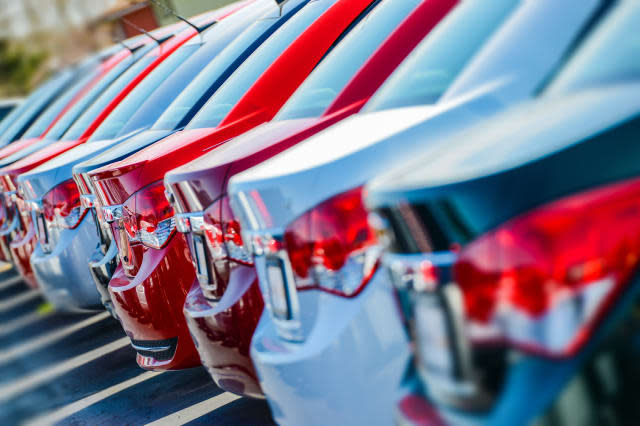The best excuse you'll ever have for buying a new car

"We should get a new car. It'll be so much cheaper to run, it'll actually save us money." It's a familiar argument for anyone who has ever trawled the second-hand car dealers with someone who desperately wants a flashy new model. But could it actually be true?
See also: Fuel duty freeze 'to save average driver £130 a year'
See also: Fresh increase for insurance premium tax 'outrageous'
See also: Government unveils plans to tackle 'epidemic' of whiplash claims
Analysis by MoneySuperMarket looked at the running costs of popular new and old cars, and discovered that people who upgrade their car could save 23% on running costs by buying something newer.
It examined the costs for five popular vehicles – Nissan Qashqai, Volkswagen Golf, BMW 3 Series, Ford Fiesta and Vauxhall Astra – and found in all five cases a brand new model incurs significantly lower running costs (including fuel, road tax, insurance and MOT) compared to a five year old model of the same vehicle.
Overall, the annual cost of running a new car is £1,398 on average, compared to £1,645 for models that are five years old – a £247 difference or 15%. Of the five cars analysed, the biggest difference was the Volkswagen Golf, where a saving of £363 (23%) can be made on the running costs of a new car compared to an older model. This brings costs down from £1,592 to £1,229.
For a brand new Ford Fiesta (1.25L, petrol) the annual running costs are even less at £1,210 per year, which is £226 cheaper than the costs associated with a five year old version. Similarly, a new Nissan Qashqai will cost drivers £1,472 to run annually, compared to £1,731 for a five year old model, a difference of £259.
Kevin Pratt, consumer affairs expert at MoneySuperMarket, said: "When making decisions about whether to purchase a new or used car, drivers may be deterred by the upfront cost of a fresh model, but it can be the best value option in the long run. Fuel efficiency, servicing costs and improved carbon emission credentials all play a part in reducing the cost of running and insuring a new car. A brand new model will have a higher price tag but showroom discounts, finance deals and cheaper running costs mean the difference can be reduced. Many new cars also come with a lengthy warranty, which will cut maintenance costs for several years in some cases."
The problem
It's a compelling argument, but it's not quite the same as a new car actually being cheaper.
According to HonestJohn.co.uk, the average cost of a five year old 1.4 litre Volkswagen Golf is around £8,000. Compare that to a new one, which hefty negotiation could get for £16,000. Assuming you owned both for five years, the running costs would be just under £2,000 less for the newer model. Of course, as Pratt points out, you've also got the cost of servicing and maintenance, but unless you were particularly unlucky, you'd still be better off with the older car.
Of course, the longer you owned both cars, the better value the newer one would be. If you kept them both for a decade, the newer one would cost £4,000 less in running costs. You would also be left with a ten-year old car worth about £3,000 and a 15-year-old car worth about £900. The older car would therefore only have to have cost £1,900 more in maintenance for you to break even.
There is a small chance, therefore, that you could make the argument work if you planned to keep the car for long enough - but you'll still be chancing your arm.




